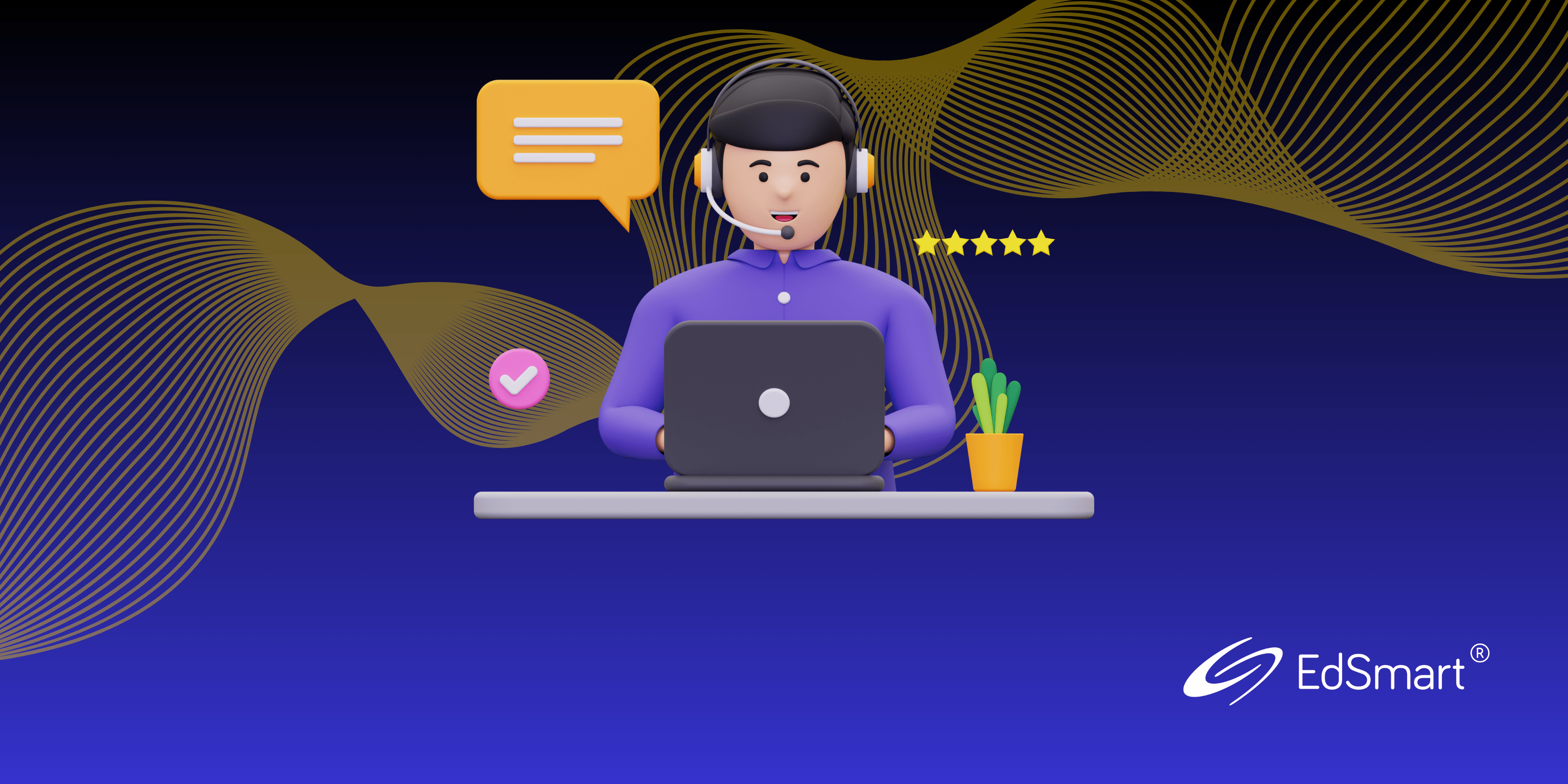Digital transformation is a major revolution in education. Chalk and blackboards – once mainstays of classrooms right across the world – are fast on the way to becoming to education what the horse and cart is to logistics.
Bearing witness to these mammoth changes is Professor Alison Clark-Wilson who has been at the frontline of research during an unprecedented metamorphosis in how students are taught, and how technology has helped schools become more efficient and streamlined than ever before. She speaks to EdSmart about where and how things could have been done better.

Mind the Gaps
The benefits of digital transformation aren’t up for debate. Schools and IT administrators are spoiled for choice when it comes to EdTech that can digitise their school processes. Borne from over three decades of experience in adapting technology to meet the needs of a classroom, Alison’s tip is to land on a platform that takes care of the majority of needs within a school.
The absence of interoperability and optimisation in many of the UK’s multi-academy trusts (MATs) and bigger standalone schools is something Alison argues must be addressed. At the time of writing, systems like lesson timetabling, admissions and communications to parents are—as she colourfully describes them—“messed up.”
“When we started out, we didn’t have school networks,” she explains, casting back to the early 1990s. “When we look at this crazy mess that some of our schools’ Edtech systems are in now, it’s because we didn’t start with [networks] in mind and it’s all got layered upon, and then layered upon again with APIs and plug-ins. We’re in a big mess because we can’t go back and start again.”
Even worse, Alison muses whether the people inside the organisations most affected by this predicament even have the knowledge of how it all works: “We have a lot of challenges around streamlining and smoothing some of the bumps, and that’s not an easy one to crack.”

Making the Grade
Another aspect that informs Alison’s philosophy on getting the ‘right’ EdTech into schools is the technology’s ability to enable teachers to devote more time to developing lessons that go beyond teaching students how to pass tests. As she puts it, “The main goal of a school is to educate kids and give them a really productive and inspiring experience to take them off into their lives.”
However, transformation in most countries has only led to a “complete mismatch between the sort of visionary tools we really want to use, and the sorts of education technologies that help kids pass exams and tests.” Instead of capturing the imaginations of students, engaging with them at a deeper level, Alison sees too many schools settling on EdTech that fails to reduce workloads and simply acts as a teachers’ aide for assisting students in passing their basic assessment tasks.
“For so many of our education systems, the end goal—from the kids’ perspective—is exams, tests, getting into the next college or university and so on. We’ve got this really screwed up system where we spend most of our time drilling and skilling on stuff for the exams, and we completely miss the opportunity to embrace this digital transformation and do things completely differently.”
“Lots of people are putting a lot of time and energy into redressing this balance,” she hastens to add, “but the recurring story of my last 25 years has been a need to drastically rethink assessment, which no one knows how to do. It’s incredibly hard because we have to break a lot of people’s perceptions of what education is, and what it’s for, in order to be able to do that.”

Use It or Lose It
For anyone born before the mid-’80s, the speed of the technological and digital revolution has been staggering. In the space of a generation, we’ve gone from computers that filled entire office floors to carrying devices compact enough to fit in our pockets that have more computing power than the Apollo 11 spacecraft.
Humanity has built an information superhighway that’s brought the world to our doorsteps, revolutionised the way we bank, the way we shop, the way we communicate with each other, and the way we educate our children.
As someone familiar with the speed of these changes, Alison is adamant that schools must do everything they can to help students, teachers, staff and parents to stay up to date with technology. To do anything less means not making the most of the technology at their disposal and flushing their investment down the toilet. In an age of having to justify every financial resource given to a school, the consequences of under-utilising EdTech could be disastrous.
“We have a lot of experience and knowledge behind us concerning what should work when it comes to EdTech strategies and digital transformation, but we have a gap between where that knowledge and expertise resides and the people who could really value it,” she explains. “Some of this knowledge is siloed, and we need to break down those walls and make that knowledge accessible to those who need it.”
One of her greatest frustrations is the lack of resources provided to supporting schools, teachers, learners, parents to merely stay abreast of digital change.
“There is a whole load of people that need to come with you on this change,” she emphasises. “No matter what the pace of change of digital transformation in any individual school, you have to take everybody on that journey. It’s no good [to have] the IT guys going, ‘Oh, we’re gonna have this new system’ without supporting everyone in the system to really learn why and how. That part is slow and painful, and very often overlooked.”
“Most of our implementations of educational technology in K-12 are not that successful because they’re not actually ever embedded. All those schools that buy products, if you drill down on who’s using them, it’s usually not what’s expected. It’s rare that any digital product is fully implemented in a school because it’s very hard to support all teacher, students, parents—whoever their product’s facing—to use it to its full capacity.”
Alison advice: “Be selective and be prepared to work long and hard on supporting things to be implemented more effectively.”

Be Good, Be Very Careful
As a bona-fide expert in the implementation of EdTech in schools, Alison’s research and observations provide considerable food for thought in terms of where schools are heading with digital transformation. The short version?
“We have some big conversations to have with the global tech companies,” she explains. “I do not think we would ever get to any sort of global agreement or legislation on any aspects of the ethics of data in education. Schools, teachers and parents have got to be part of the conversation, though, and we’ve got to be very critical of what we do and don’t take into our education systems with regards to broader education technologies.”
As well as ensuring education leaders are as upskilled as possible on education policy aspects of data and data ethics, Alison believes students have an important role to play in the process: “We almost need to educate every child to be an activist,” she laughs, “because if we don’t act, nothing changes.”
“You have people who complain, and you have people who act. Ultimately, we need humans to be activists in challenging decisions – not in a way that is disruptive or is at the extreme ends of that kind of thing – we need people to take action when technology may be on the edge of being out of control.”
“So I think these are almost…” here Alison pauses and considers her words very carefully, “… digital survival skills that we need to think about how we develop. We need to support parents and teachers in an ongoing way, so we have responsible, global digital citizens.”



